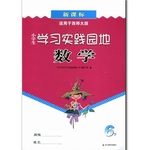题目内容
Fifteen years ago, I took a summer vacation in Lecce in southern Italy. After climbing up a hill for a panoramic(全景的) view of the blue sea, white buildings and green olive trees, I paused to catch my breath and then positioned myself to take the best photo of this panorama.
Unfortunately, just as I took out my camera, a woman approached from behind, and planted herself right in front of my view. Like me, this woman was here to stop, sigh and appreciate the view.
Patient as I was, after about 15 minutes, my camera scanning the sun and reviewing the shot I would eventually take, I grew frustrated. Was it too much to ask her to move so I could take just one picture of the landscape? Sure, I could have asked her, but something prevented me from doing so. She seemed so content in her observation. I didn’t want to mess with that.
Another 15 minutes passed and I grew bored. The woman was still there. I decided to take the photo anyway. And now when I look at it, I think her presence in the photo is what makes the image interesting. The landscape, beautiful on its own, somehow comes to life and breathes because this woman is engaging with it. zxx|k
This photo, with the unique beauty that unfolded before me and that woman who “ruined” it, now hangs on a wall in my bedroom. What would she think if she knew that her figure is captured(捕捉) and frozen on some stranger’s bedroom wall? A bedroom, after all, is a very private space, in which some woman I don’t even know has been immortalized(使……永存). In some ways, she lives in my house.
Perhaps we all live in each others’ spaces. Perhaps this is what photos are for: to remind us that we all appreciate beauty, that we all share a common desire for pleasure, for connection, for something that is greater than us.
That photo is a reminder, a captured moment, an unspoken conversation between two women, separated only by a thin square of glass.
1.What happened when the author was about to take a photo?
A. Her camera stopped working.
B. A woman blocked her view.
C. Someone asked her to leave.
D. A friend approached from behind.
2.According to the author, the woman was probably_______.
A. enjoying herself
B. losing her patience
C. waiting for the sunset
D. thinking about her past
3.In the author’s opinion, what makes the photo so alive?
A. The rich color of the landscape.
B. The perfect positioning of the camera.
C. The woman’s existence in the photo.
D. The soft sunlight that summer day.
4.The photo on the bedroom wall enables the author to better understand ________.
A. the need to be close to nature
B. the importance of private space
C. the joy of the vacation in Italy
D. the shared passion for beauty
5.The passage can be seen as the author’s reflections upon _______.
A. a particular life experience
B. the pleasure of traveling
C. the art of photography
D. a lost friendship
 仁爱英语同步练习册系列答案
仁爱英语同步练习册系列答案 学习实践园地系列答案
学习实践园地系列答案
